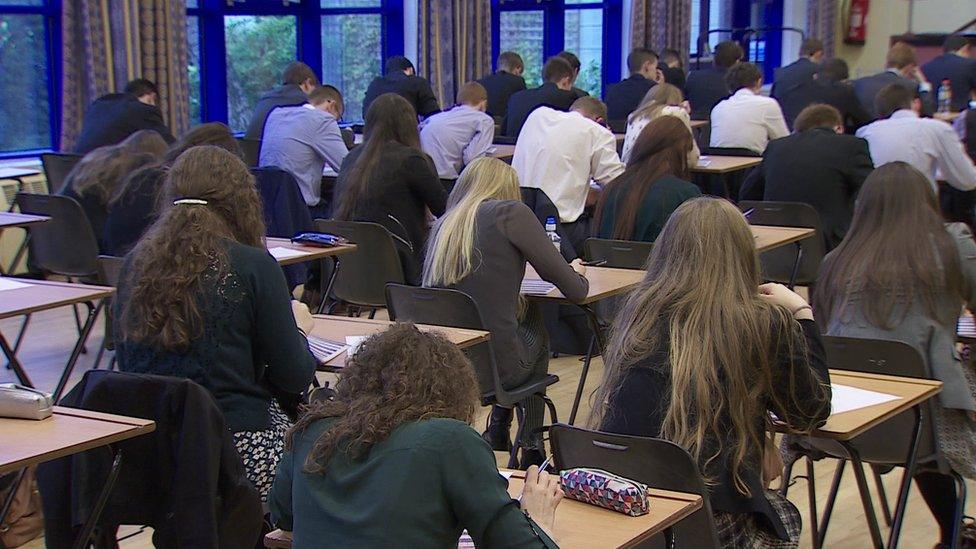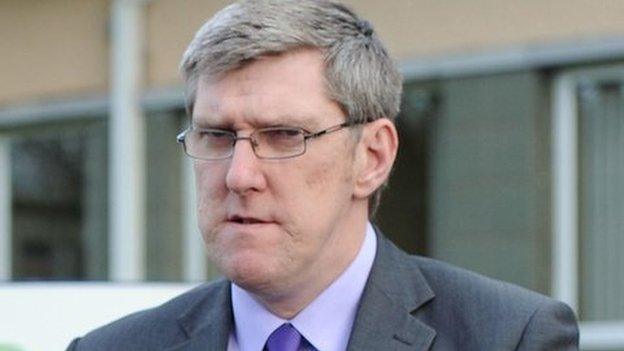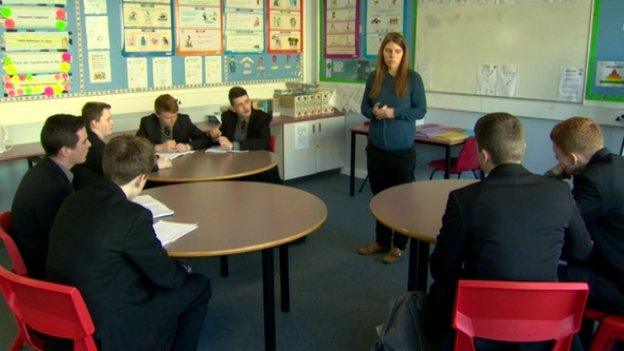Cancelled literacy and numeracy programme had 'positive impact'
- Published

A majority of pupils supported by the programme improved their attendance at school
A cancelled government education scheme helped thousands of pupils improve their English and maths results.
The literacy and numeracy signature programme ran from 2013 to 2015 but was not renewed due to a lack of money.
It helped almost 19,000 pupils, provided jobs for 310 new teachers and gave extra staff to hundreds of schools.
The final report on the second year of the programme has just been published by the Department of Education (DE).
Funding
It received £13.8m funding from the Office of the First and Deputy First Minister (OFMDFM) and an additional £1.9m from DE.
The scheme was targeted at pupils in both primary schools and post-primary schools who were struggling to reach basic standards in English and maths.
Only newly-qualified teachers could apply for the jobs, which were for a two-year period.
The final report reveals that of pupils helped by the scheme:
76% of primary school pupils reached level four or above in English, the expected skill level at the end of primary school;
80% of primary school pupils reached level four or above in maths;
65% of post-primary pupils got a GCSE grade C or above in English;
60% of post-primary pupils got a GCSE grade C or above in maths.
Implications
A majority of pupils supported by the programme also improved their attendance at school.
Almost nine out of 10 primary schools that took part said the signature programme was successful.
Eight out of 10 post-primary schools also reported that it had benefited pupils.
Chris Donnelly, the principal of Holy Cross Boys' Primary School in Belfast, said the programme had a proven impact on his pupils, with teachers working with them in small, tutorial-style groups.
"One of the keys to the success of [the scheme was that] it wasn't necessarily targeting the children who would be deemed the low attainers, like so many of the initiatives in schools do," Mr Donnelly said.
Aims
"It was targeting children who were underachieving - that's a distinct cohort of children, and we were able to see the success.
"Schools are going to now feel the pinch, and unfortunately initiatives like this and their legacies that are going to suffer."
The final report said the signature programme had "far-reaching implications".
"Not only were the original aims achieved but the programme produced a number of outcomes and made a positive impact in our schools," it said.
It was revealed that the signature project was ending in June 2015, although some school principals had called for it to be extended.
- Published3 June 2015

- Published4 February 2015
